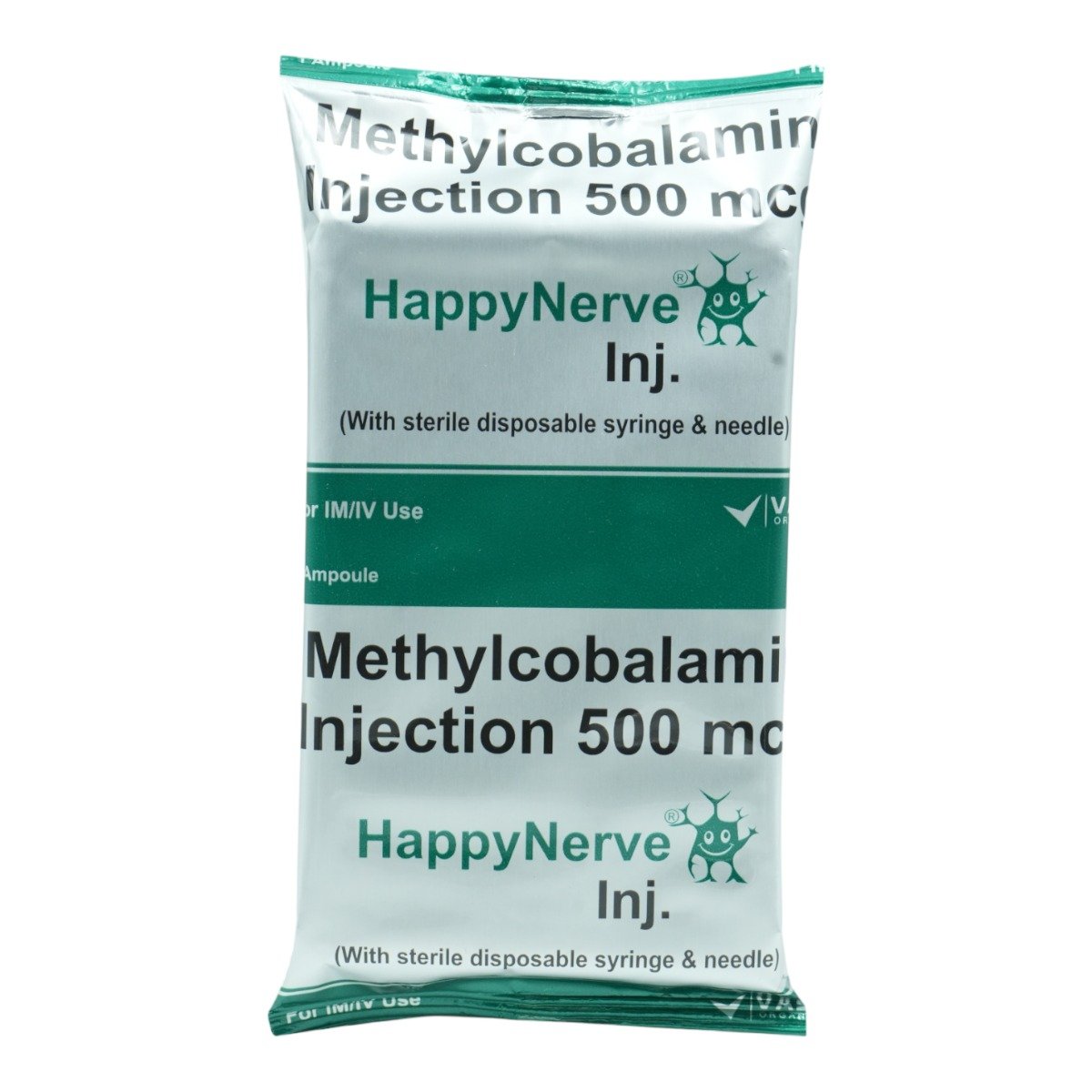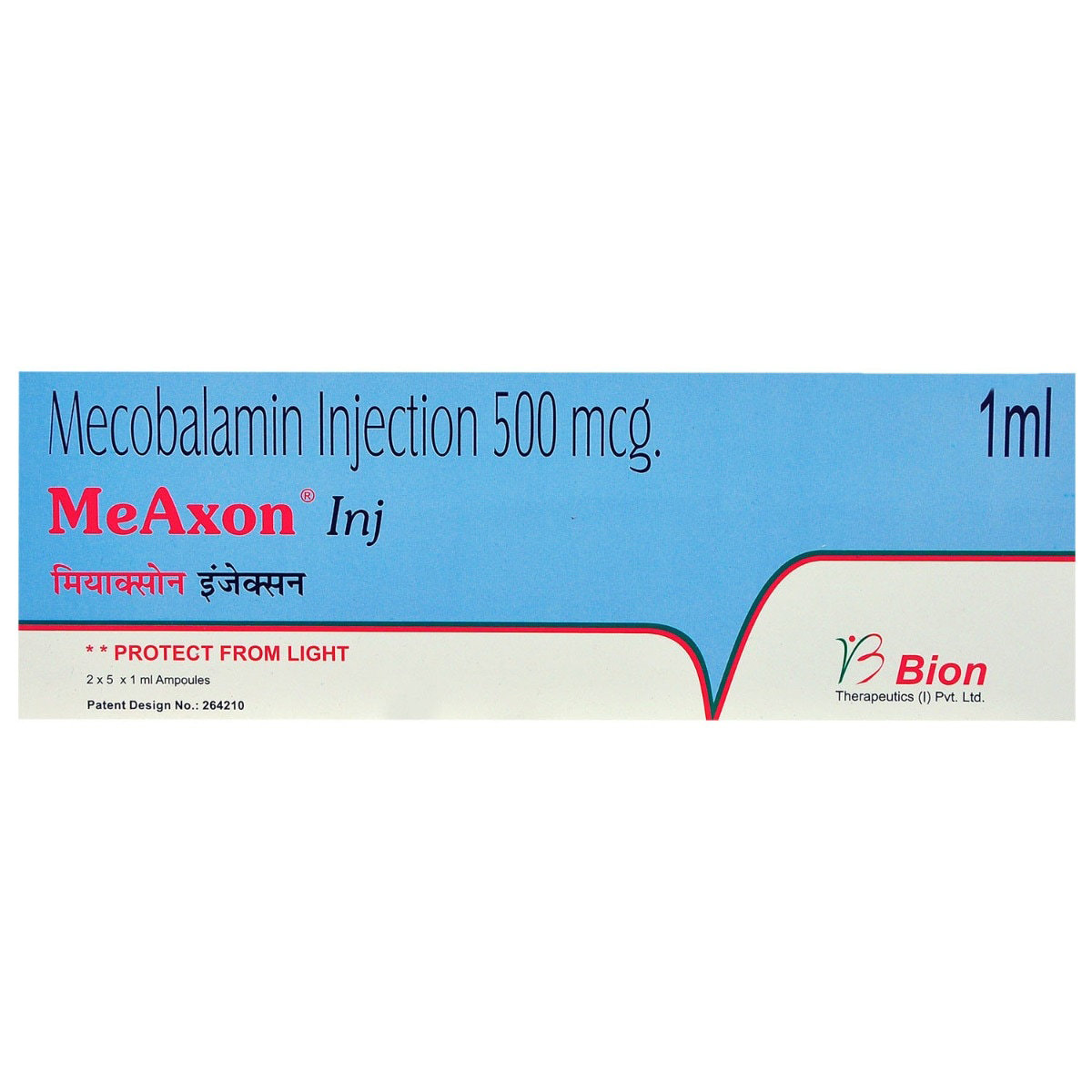Rejunex Injection 1 ml
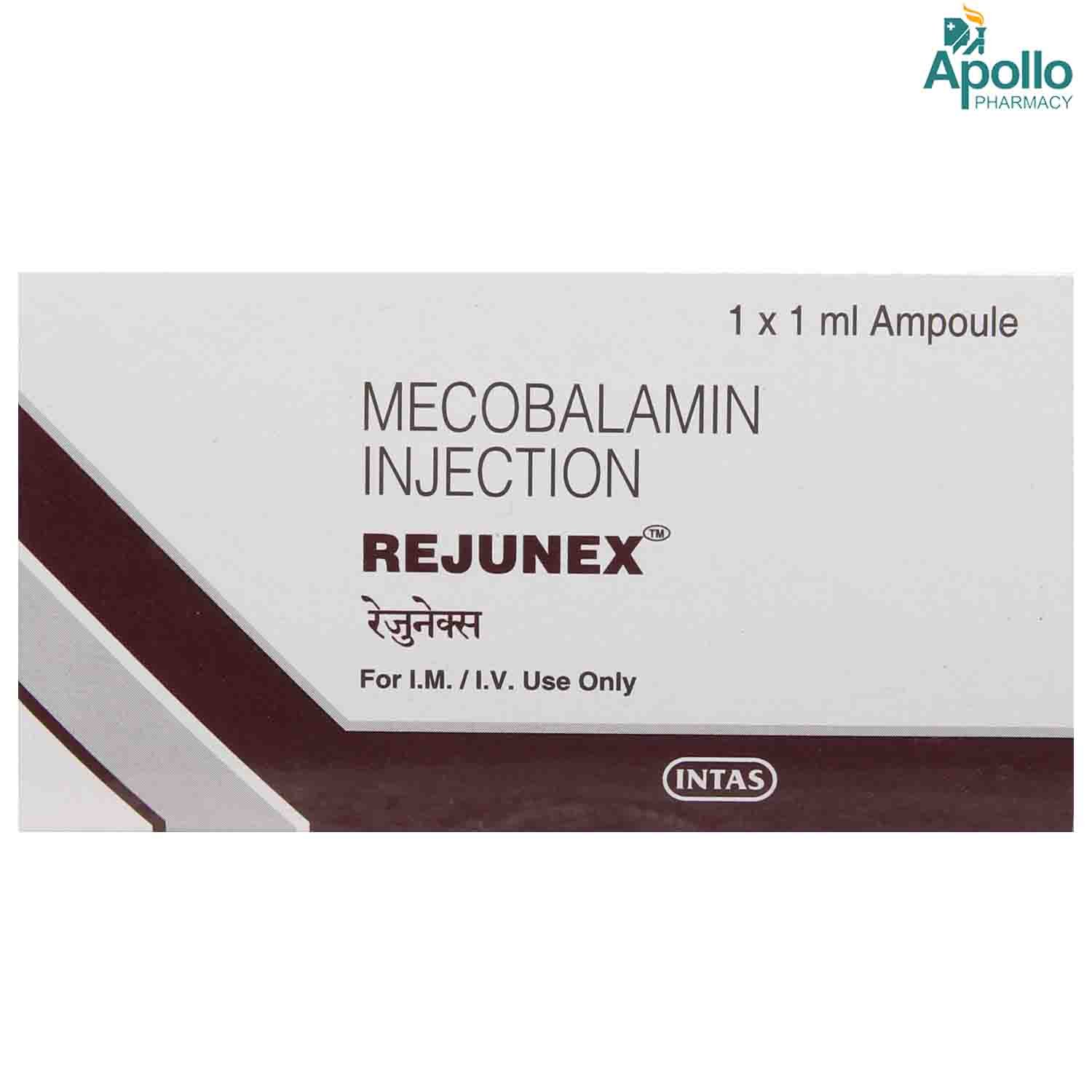
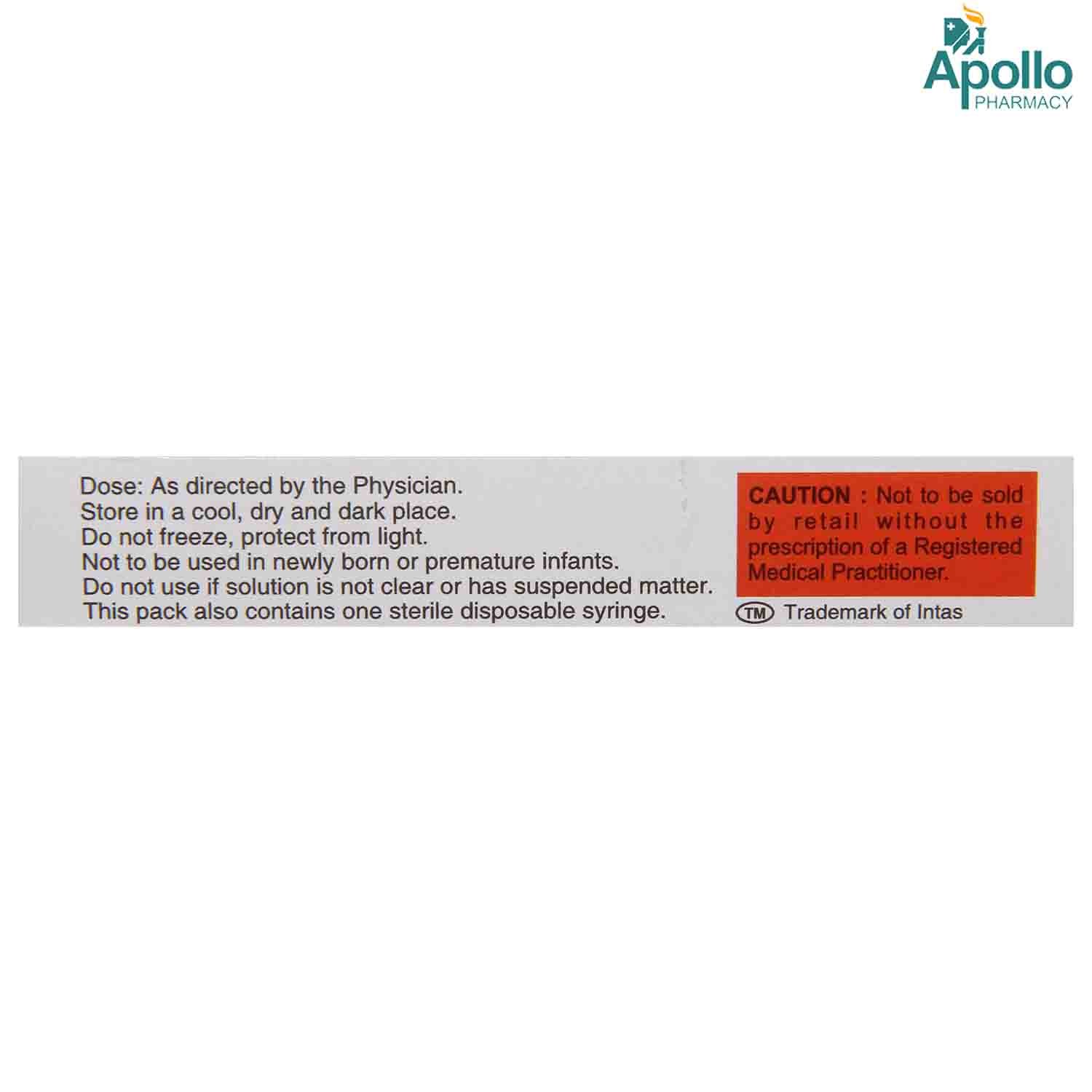
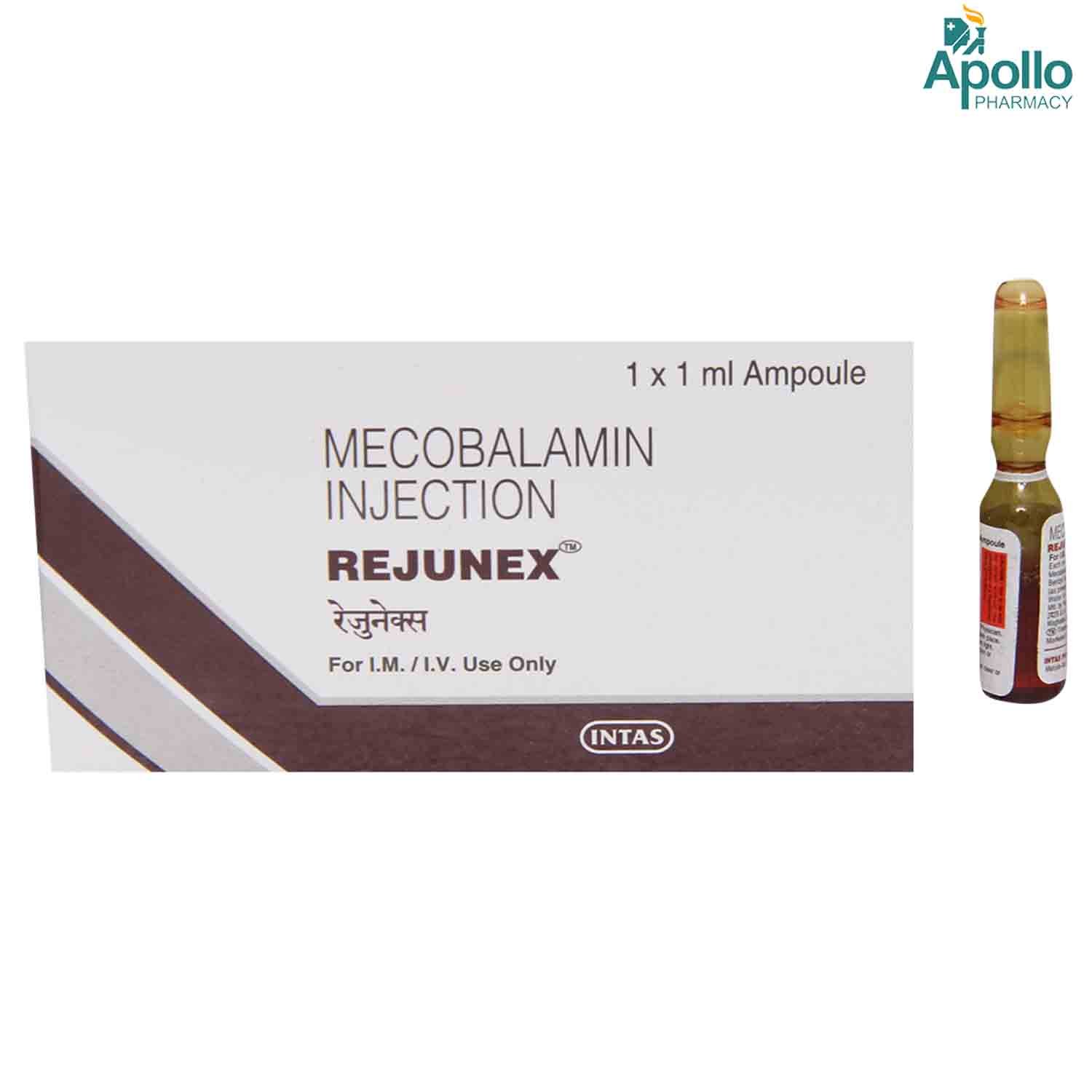
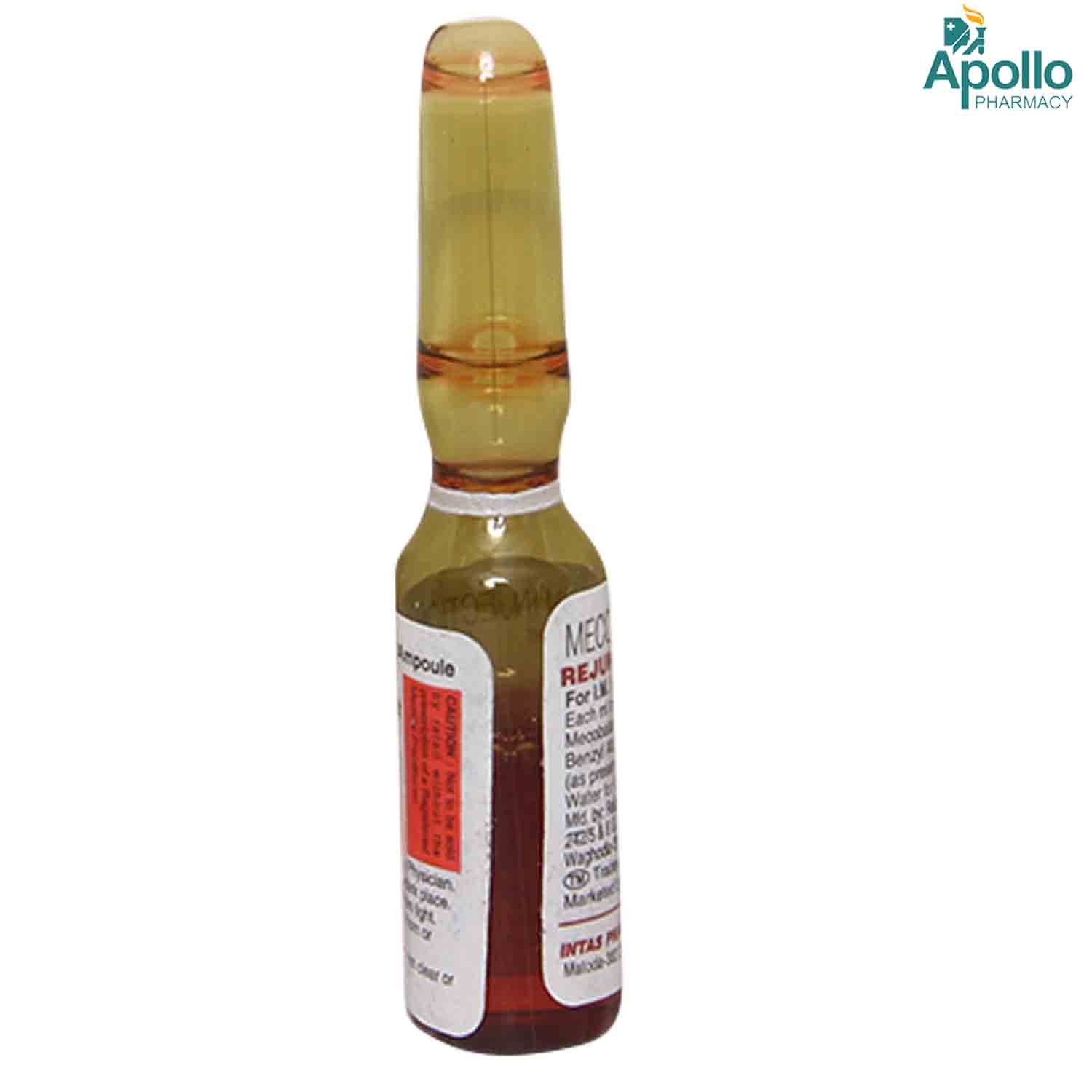
MRP ₹69
(Inclusive of all Taxes)
₹10.3 Cashback (15%)
know your delivery time
Provide Delivery Location
Composition :
Manufacturer/Marketer :
Consume Type :
Expires on or after :
Return Policy :

Secure Payment

Trusted by 8 Crore Indians

Genuine Products
Therapeutic Class
Country of origin
Manufacturer/Marketer address
Author Details
We provide you with authentic, trustworthy and relevant information
Disclaimer
Alcohol
Safe if prescribed
Alcohol does not affect the results of Rejunex Injection 1 ml. However, excessive alcohol consumption regularly can result in folate-deficient anaemia.
Pregnancy
Consult your doctor
Rejunex Injection 1 ml may be unsafe to take during pregnancy. If you are pregnant, inform your doctor before taking this medicine. Your doctor may prescribe Rejunex Injection 1 ml if the benefits outweigh the risks.
Breast Feeding
Consult your doctor
Rejunex Injection 1 ml is considered safe to be used in breastfeeding. However, if you are breastfeeding, inform your doctor before taking Rejunex Injection 1 ml.
Driving
Safe if prescribed
Rejunex Injection 1 ml does not impact an ability to drive or operate capabilities.
Liver
Consult your doctor
Rejunex Injection 1 ml should administer with caution in patients with severe liver disease. If you have liver problems, inform your doctor before taking Rejunex Injection 1 ml. Your doctor may adjust the dose of this medicine based on your condition.
Kidney
Consult your doctor
Rejunex Injection 1 ml should administer with caution in patients with kidney disease. If you have kidney problems, inform your doctor before taking Rejunex Injection 1 ml. Your doctor may adjust the dose of this medicine based on your condition.
Children
Safe if prescribed
Rejunex Injection 1 ml can be prescribed for children below 12 years, but your doctor made dose adjustments.
Product Substitutes
Reference
- https://www.everydayhealth.com/drugs/methylcobalamin-vitamin-b12-oral-injection
- https://www.mims.com/india/drug/info/mecobalamin?type=full&mtype=generic
- http://peripheralneuropathycenter.uchicago.edu/learnaboutpn/typesofpn/systemic/nutrition.shtml
- https://www.healthline.com/health/megaloblastic-anemia
- https://www.drugs.com/mtm/methylcobalamin-vitamin-b12.html#interactions
- https://www.nhs.uk/medicines/cyanocobalamin
About Rejunex Injection 1 ml
Rejunex Injection 1 ml belongs to the Vitamins class, primarily used to treat peripheral neuropathies and megaloblastic anaemia caused by vitamin B12 deficiency. Vitamin B12 is a vital dietary nutrient, and deficiency of vitamin B12 can lead to peripheral neuropathy, megaloblastic anaemia, and many other serious conditions.
Rejunex Injection 1 ml contains Mecobalamin, a form of vitamin B12 that helps protect the nerves from damage and also helps to promote blood cell production. It regulates body functions, such as cell multiplication, blood formation, and protein synthesis.
Rejunex Injection 1 ml is a prescription-only medication. It will be administered by a healthcare professional; do not self-administer. You may experience pain, itching, swelling or redness around the injection site, nausea, vomiting, diarrhoea, and headache. Most of these side effects do not require medical attention and resolve gradually over time. However, you are advised to talk to your doctor if you have signs of an allergic reaction, such as swelling of the face, lips, or tongue or breathing problems.
To treat your condition effectually, continue taking Rejunex Injection 1 ml for as long as your doctor has prescribed. Please do not stop taking Rejunex Injection 1 ml without consulting your doctor. Do not take Rejunex Injection 1 ml if you are pregnant or breastfeeding unless prescribed by the doctor. Rejunex Injection 1 ml should be given to children as advised by your doctor. Keep your doctor informed about your present and past medical history and ongoing medicines to rule out any side effects.
Uses of Rejunex Injection 1 ml
Medicinal Benefits Mweb
Key Benefits
Mecobalamin (Methylcobalamin) is a coenzyme form of vitamin B12. It regulates body functions, such as cell multiplication, blood formation, and protein synthesis. It is also used in the treatment of alcoholic neuropathy, pernicious anaemia (red blood cells are not produced due to Vitamin B12 deficiency), diabetic neuropathy (nerve damage due to high blood sugar levels), and multiple sclerosis (immune system disease affecting the brain).
Directions for Use
Side Effects of Rejunex Injection 1 ml
- Painfulness or tenderness at the injection site
- Nausea
- Vomiting
- Diarrhoea
- Loss of appetite
- Headache
Drug Warnings
Do not consume Rejunex Injection 1 ml if you are allergic to any ingredients in Rejunex Injection 1 ml. To treat your condition effectually, continue taking Rejunex Injection 1 ml for as long as your doctor has prescribed. Please do not stop taking Rejunex Injection 1 ml without consulting your doctor. Do not take Rejunex Injection 1 ml if you are pregnant or breastfeeding unless prescribed by the doctor. Rejunex Injection 1 ml should be given to children as advised by your doctor. Inform your doctor if you have low potassium levels in the blood, iron or folic acid deficiency, or if you have had optic nerve damage. Keep your doctor informed about your health condition and medicines to rule out any side effects.
Drug-Drug Interactions
Drug-Drug Interactions
Login/Sign Up
Coadministration of Rejunex Injection 1 ml with Chloramphenicol can impair absorption and increase the levels of Rejunex Injection 1 ml which can increase the risk or severity of side effects.
How to manage the interaction:
Taking Rejunex Injection 1 ml with Chloramphenicol together can possibly result in an interaction, it can be taken if your doctor has advised it. However, if you notice any symptoms of Vomiting, Diarrhoea, Nausea, Headache, or Loss of appetite, you should contact your doctor immediately. Do not stop using any medications without first talking to your doctor.
Coadministration of Rejunex Injection 1 ml with Neomycin can impair the absorption of Rejunex Injection 1 ml and increase its levels which can increase the risk or severity of side effects.
How to manage the interaction:
Taking Rejunex Injection 1 ml with Neomycin together is not recommended as it can possibly result in an interaction, it can be taken if your doctor has advised it. However, if you notice any symptoms of Vomiting, Diarrhoea, Nausea, Headache, or Loss of appetite you should contact your doctor immediately. Do not stop using any medications without first talking to your doctor.
Drug-Food Interactions
Drug-Food Interactions
Login/Sign Up
Drug-Diseases Interactions
Drug-Diseases Interactions
Login/Sign Up
Drug-Drug Interactions Checker List
- AMINOSALICYLIC ACID
- ARSENIC TRIOXIDE
- CHLORAMPHENICOL
Habit Forming
Diet & Lifestyle Advise
- Take fresh fruits and vegetables into your diet.
- Eat fortified cereals in your diet.
- Drink milk and make cheese and yoghurt in your diet.
- Take eggs, meat, and fish into your diet.
- Avoid oily and canned foods.
- Avoid tea and coffee.
- Quit smoking and avoid drinking alcohol.
All Substitutes & Brand Comparisons
RX
Out of StockL-Vit 12 Vial 30Ml
Laborate Pharmaceuticals India Ltd
₹35.5
(₹1.07/ 1ml)
98% CHEAPERRX
Out of StockMaconerv 500 Injection 1 ml
Macro Pharmaceuticals
₹25
(₹22.5/ 1ml)
63% CHEAPERRX
Out of StockMecofol 500 MCG Injection 1 ml
Intas Pharmaceuticals Ltd
₹26
(₹23.4/ 1ml)
62% CHEAPER
Buy best Health & Nutrition products by
Vlado Sky Enterprise Pvt Ltd
Abbott India Ltd
Sun Pharmaceutical Industries Ltd
Apollo Healthco Limited
Zydus Healthcare Ltd
Macleods Pharmaceuticals Ltd
West Coast Pharmaceuticals Pvt Ltd
Intas Pharmaceuticals Ltd
Mankind Pharma Pvt Ltd
Meyer Organics Pvt Ltd
Emcure Pharmaceuticals Ltd
Lupin Ltd
Alkem Laboratories Ltd
Nutritionalab Pvt Ltd
Eris Life Sciences Ltd
Akumentis Healthcare Ltd
British Biologicals
La Renon Healthcare Pvt Ltd
Cipla Ltd
Micro Labs Ltd
Zuventus Healthcare Ltd
Torrent Pharmaceuticals Ltd
Pharmed Ltd
Dr Reddy's Laboratories Ltd
Modi Mundipharma Pvt Ltd
Corona Remedies Pvt Ltd
Hindustan Unilever Ltd
Indchemie Health Specialities Pvt Ltd
Apex Laboratories Pvt Ltd
Koye Pharmaceuticals Pvt Ltd
Leeford Healthcare Ltd
Bioceutics Inc
East West Pharma India Pvt Ltd
Alniche Life Sciences Pvt Ltd
FDC Ltd
Alembic Pharmaceuticals Ltd
Aristo Pharmaceuticals Pvt Ltd
DR Johns Lab Pharma Pvt Ltd
Herbs Nutriproducts Pvt Ltd
Guardian Healthcare Services Pvt Ltd
Vasu Organics Pvt Ltd
Pulse Pharmaceuticals
Fourrts India Laboratories Pvt Ltd
TTK Healthcare Ltd
Raptakos Brett & Co Ltd
USV Pvt Ltd
Glanbia Performance Nutrition India Pvt Ltd
Morepen Laboratories Ltd
Innovcare Life Sciences Pvt Ltd
Linux Laboratories Pvt Ltd
Troikaa Pharmaceuticals Ltd
Cadila Pharmaceuticals Ltd
Bright Lifecare Pvt Ltd
Wockhardt Ltd
Sanofi India Ltd
Primus Remedies Pvt Ltd
Zydus Cadila
Kellogg India Pvt Ltd
Tablets India Ltd
Indoco Remedies Ltd
Medley Pharmaceuticals Ltd
Overseas Health Care Pvt Ltd
Procter & Gamble Health Ltd
Shri Balaji Overseas
Dabur India Ltd
Ordain Health Care Global Pvt Ltd
Systopic Laboratories Pvt Ltd
Ajanta Pharma Ltd
Daris Biocare
Health & Happiness (H&H) Trading India Pvt Ltd
Hexagon Nutrition Pvt Ltd
Nutricia International Pvt Ltd
Zee Laboratories Ltd
Aareen Healthcare Pvt Ltd
Aeronutrix Sports Products Pvt Ltd
Emami Ltd
Radicool Pharmaceuticals Pvt Ltd
Wanbury Ltd
Biovitamins Pvt Ltd
Cadila Healthcare Ltd
Esmatrix Life Sciences Pvt Ltd
Ipca Laboratories Ltd
Klm Laboratories Pvt Ltd
Lloyd Healthcare Pvt Ltd
Sain Medicaments Pvt Ltd
Septalyst Lifesciences Pvt Ltd
Tas Med India Pvt Ltd
Wallace Pharmaceuticals Pvt Ltd
Biorex Healthcare Pvt Ltd
Elbrit Life Sciences Pvt Ltd
Levin Life Sciences Pvt Ltd
Panacea Biotec Ltd
Adret Retail Pvt Ltd
Cipla Health Ltd
Delcure Life Sciences Ltd
Femura Pharmaceuticals Pvt Ltd
Gladstone Pharma India Pvt Ltd
GlaxoSmithKline Consumer Healthcare Ltd
Kepler Healthcare Pvt Ltd
Ronyd Healthcare Pvt Ltd
SPECIALITY SUPPLEMENT
CALCIUM
IRON
VITAMIN D
COLLAGEN
VITAMIN B12
VITAMIN C
FISH OIL OMEGA
VITAMIN B
MULTIVITAMIN
Adult Nutrition Drink
ZINC
SEXUAL HEALTH SUPPLEMENT
WHEY PROTEIN
Kids Nutrition Drink
VITAMIN B9
ENERGY DRINK
SPECIALITY NUTRITION DRINK
DRY FRUIT
HERBAL JUICE
VITAMIN E
Prebiotic & Probiotic
ORS
SUGAR SUBSTITUTE
WOMEN & MOTHER NUTRITION DRINK
Chyawanprash
MAGNESIUM
Protein Bar
BREAKFAST CEREAL
Protein Powder
BIOTIN
DIABETIC NUTRITION DRINK
Honey
WEIGHT LOSS
Fat Burner
PLANT PROTEIN POWDER
VITAMIN B1
Apple Cider Vinegar
MELATONIN
APPETITE STIMULANT
Meal Replacement
Peanut Butter
AMINO ACID
Flax seed Oil
INFUSION TEA
NUT & SEED
Ashwagandha
Instant Food
OATS
Olive Oil
Mass Gainer
Pre Workout
CURCUMIN
POTASSIUM
VITAMIN A
DISKETTE
L-Carnitine
Cod Liver Oil
CREATINE
MILLETS & CEREALS
VITAMIN B6
ARGININE
COENZYME Q10
Shilajit
Appetite Suppressant
Chromium
MILK THISTLE
Glutathione
VITAMIN B2
VITAMIN K
L-Glutamine
MORINGA
GARCINIA CAMBOGIA
GREEN TEA
SPIRULINA
ALPHA-LIPOIC ACID
GLUCOSAMINE
GOKSHURA
BCAA Protein Powder
GILOY
NEEM
SAFFRON
SELENIUM
TRIPHALA
Tulsi
VITAMIN B3
VITAMIN B5
Brahmi
CANDIES
FRUIT JUICE
Face Gel
Specialty Supplements
WEIGHT GAINER
WHEAT GRASS POWDER
Frequently Bought Together
Customers Also Bought






